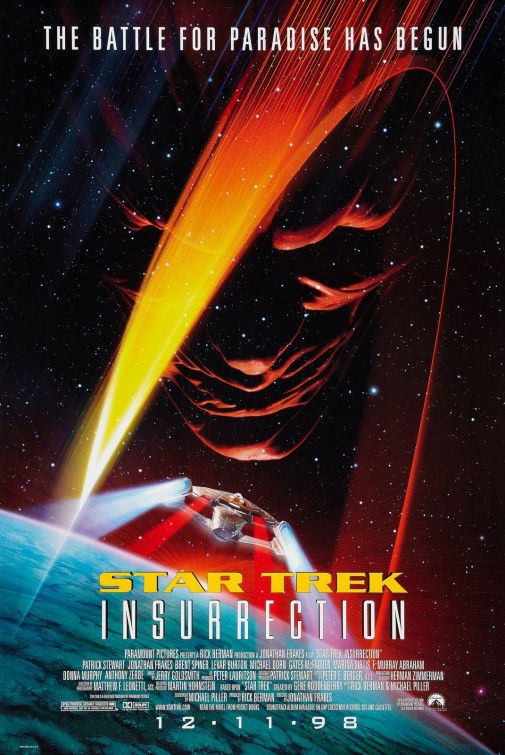“Bridges to Babylon”

| None | Light | Moderate | Heavy | |
|---|---|---|---|---|
| Language | ||||
| Violence | ||||
| Sex | ||||
| Nudity |
What You Need To Know:
Much like 2005’s CRASH, BABEL’s narrative connects the actions of several unlikely individuals and shows how the consequences of bad choices can have a ripple effect on others. BABEL also touches on a number of hotbed political issues, yet refrains from being a political movie. The movie’s different narratives involve topics such as illegal immigration in the U.S., America’s war on terrorism and gun-control, and the message could easily drift into political correctness, but stays on course with a sobering, honest and compassionate statement about human nature. Ultimately, BABEL is a well-crafted, well-acted drama with a strong biblical worldview and profound message. Regrettably, however, the movie has excessive foul language, violence, nudity, and some gratuitous sexual content.
Content:
(BB, PaPa, C, P, AP, PC, LLL, VVV, SS, NNN, AA, DD, M) Strong moral worldview portraying how individual sins often have collective consequences, moral elements of love and compassion, as well as many strong pagan elements, most of which are ultimately rebuked, a few brief references to Christianity in scenes depicting Catholic art, and both anti-American and pro-American content; strong language with at least 22 obscenities including several ‘f’ words and six profanities; very strong violence including several shooting scenes, one disturbing scene in which a woman is shot near the neck and bleeds profusely, another in which a young boy is shot, a boy is depicted shooting adults (one accidental, one out of self-defense), a brief scene of fighting between two men, and a brief bloody scene in which a man is depicted wringing a chicken’s neck; some sexual content including a teenage girl who doesn’t wear panties under her skirt and flashes boys in an effort to get attention as well as a scene in which a teenage girl tries to seduce older men, although the men resist and no sex in depicted or implied, another scene in which a young boy watches his sister bathe, although the boy is ultimately rebuked by his older brother and father, and brief scene depicting a young boy with his hand down his pants masturbating; extensive nudity including full frontal and rear female nudity in a few scenes as well as naturalistic upper male nudity in one scene; alcohol use depicted in several scenes, including teenagers drink whisky out of a bottle and at a club as well as a large group of people drinking at a festive wedding reception, and drunk driving; a few scenes of smoking and drug use including teenagers smoking cigarettes and popping pills and a scene in which a woman who has been shot is given opium for purposes of medication; and, bad role models, rude behavior and some internationalist elements portraying the complications involved in foreign relations between different nations.
More Detail:
The movie begins in Morocco, where a poor farmer is gives a hunting rifle to his young sons to scare off animals that have been attacking their herd. The boys are careless with the gun, and accidentally shoot a tour bus on the highway in the distance, where they unknowingly strike American tourist Susan (Cate Blanchett), who is traveling with her husband Richard (Brad Pitt). Meanwhile, Richard and Susan’s two children are being watched in their California home by their housekeeper Amelia (Adriana Barraza), who takes the children with her to Tijuana for her son’s wedding. The movie also tells the story of Chieko (Rinko Kikuchi), a mute teenage girl in Tokyo whose frustrations with her mother’s suicide and inability to communicate well have caused her to act out in a variety of ways and become distant with her father.
Much like 2005’s Oscar-winning CRASH, BABEL’s narrative connects the actions of several unlikely individuals (in this case, characters all over the world) and shows how the consequences of our bad choices can have a ripple effect on others. Although perhaps unintentional, the movie does a fantastic job of revealing the universal state of humanity. We are flawed by our imperfections and mistakes, and our sins have far-reaching effects. Likewise, despite cultural or geographical differences, we all yearn for and are in need of redemption. BABEL is a profound and moving picture that takes an honest look at this ugliness and helplessness of the human condition.
BABEL also touches on a number of hotbed political issues, yet fortunately refrains from being a political movie. The movie’s different narratives involve topics such as illegal immigration in the U.S., America’s war on terrorism and gun-control, and the message could easily drift into the tiresome, preachy world of political correctness. Instead of throwing political rocks, however, it stays on course with a sobering, honest and compassionate statement about human nature.
Unfortunately, BABEL is also excessive in many ways. A brief masturbation scene of a pre-adolescent boy is repugnant, as are the several scenes of extensive nudity the movie contains. The large amount of foul language is unacceptable and unneeded, and the movie is too violent. Finally, at 142 minutes, BABEL is simply too long.
Ultimately, BABEL is a well-crafted, well-acted drama with a strong biblical worldview and profound message. With a number of major content problems, however, MOVIEGUIDE® rates BABEL as excessive.


 - Content:
- Content: 

